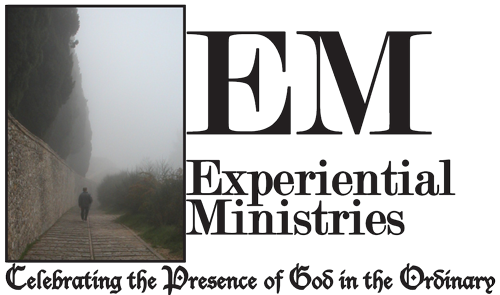“All the world’s a stage, and all the men and women merely
players: they have their exits and their entrances.”
W. Shakespeare, Comedy of Errors
The Play—A Parable for the Church by Mark R Klopfenstein
________________________________________________________________________
It was a small theater and the evening’s entertainment was billed as
something called The Almost Shakespeare Company. The audience were led to
their assigned seats by the ushers in two and threes and they settled in talking
quietly amongst themselves. As the house lights dimmed, a reverent quiet fell
and anticipation filled the air. The curtain rose on a pleasant setting where four
or five actors (no one was quite sure because they kept changing costumes)
began to act out the play. It was funny at moments, sad at others and
occasionally the audience was even challenged to look within and question
themselves.
Suddenly an actor jumped off the stage and continued the play from there.
Then another joined him and another until the action was taking place all around
the audience. This was uncomfortable for the audience some were even a bit
fearful but most were willing to accept this turn of events, as unconventional as it
was it was still entertaining. They were so enthralled that most had not noticed
that the house lights had come back on.
Just as the audience was becoming comfortable with this new twist, the
actors turned and began addressing the audience. Once again, many felt
apprehension and fear. They wondered what they would do if they were asked
to participate? They had come to see a show not be part of it! Despite the
feelings of discomfort and doubt, some actually began to enter into dialogue with
the actors making up dialogue as they went along. Others found that under their
fear deep inside a little voice was saying, “I could have answered that.” or, “I
could do this!” and even, “If only they would ask me to join in.”
One woman stood up and entered into the story without being asked and
she was included in the play as if she had always been part of the action. This
allowed others to gather their courage, stand up, step out, and join in. Some
however refused to participate in this foolishness. They had come to the theater
to be entertained. They would not get involved.
By the end of the evening while a few had left the theater in disgust, most
of the audience had joined into the improvisation, took off their costumes, their
masks, their wigs and their makeup until in the end the transformation was
complete. There was no longer any distinction, between the original actors (were
there really only four?) and the audience. There was no distinction between the
stage and the auditorium, the play and life. They were on the stage, in the seats,
the halls, the box office, the lobby and they had even spilled out into the streets.
In fact, in the streets, they invited others to join in; complete strangers saw the
joy of the people and were compelled to set aside who they had become, to
become who they were.
______________________________________________________
Now, with God’s help, I shall become myself. Soren Kierkegaard

